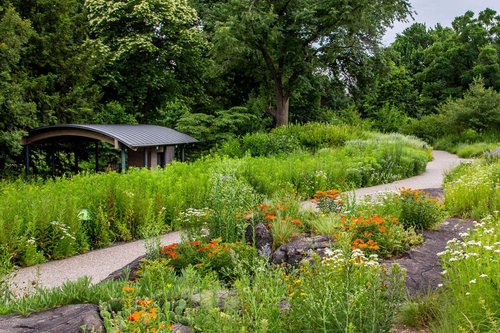
4 min read
No Mow May: A Pollinator Love Story
Conscientious inaction can be the key to biodiversity. For the modern gardener, what we choose not to do, not to buy, or not to mow is sometimes of greater consequence to the natural environment.
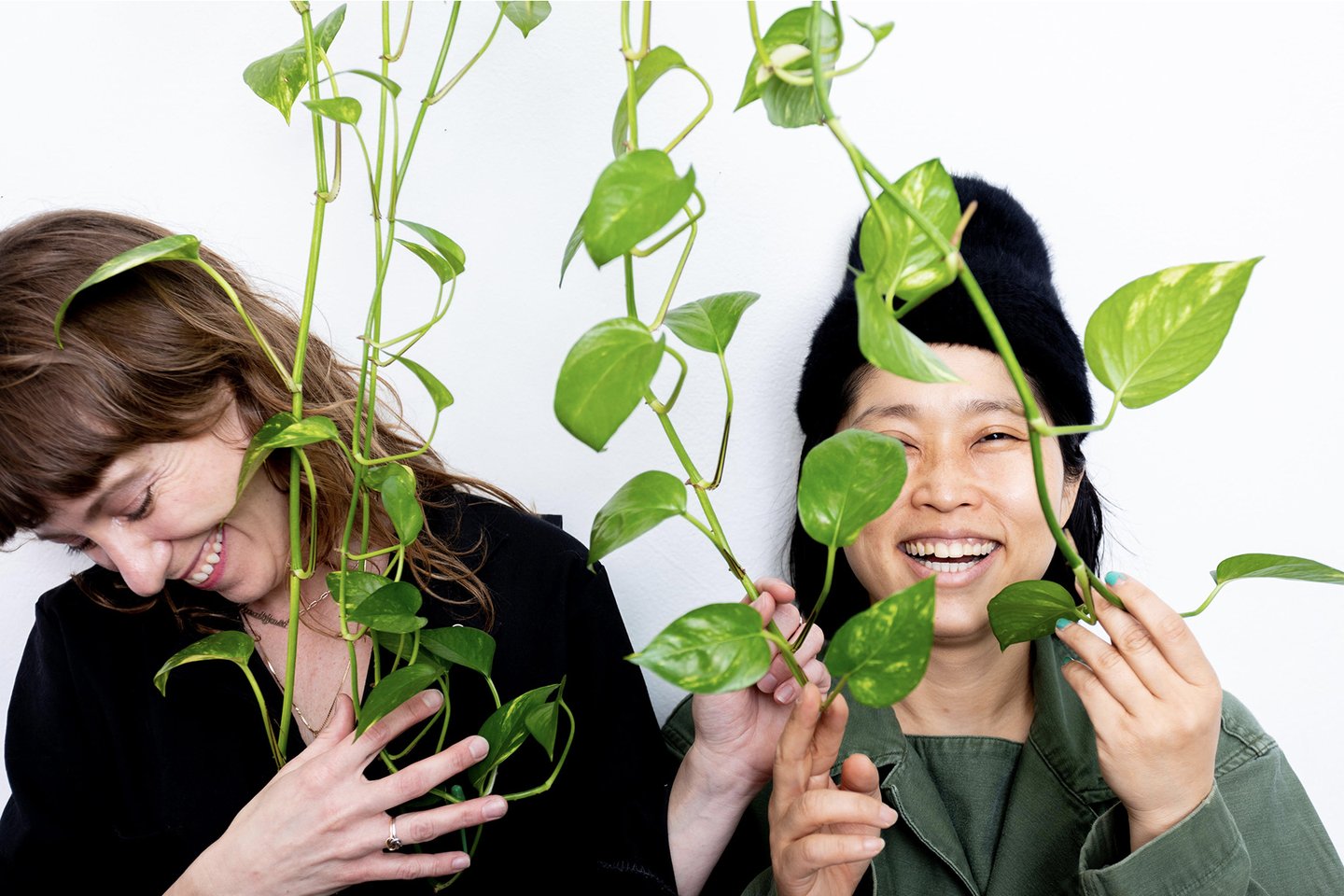
3 min read
Inside the Very Sad Lab, where art, botany and community come together to nurture both plants and people.
A botanist might call Naoco Wowsugi and Valerie Wiseman companion plants—two species grown close together to mutually support and nurture each other. Together, they have created a piece of living community art in the Very Sad Lab; part real-time plant rehabilitation, part horticultural therapy for humans.
Very Sad Lab is a remarkable fusion of art, scientific inquiry, horticulture and plant equity. Its mission is to infuse Washington, DC with more greenery, cultivating a stronger bond between its residents and the natural world through the medium of plants.
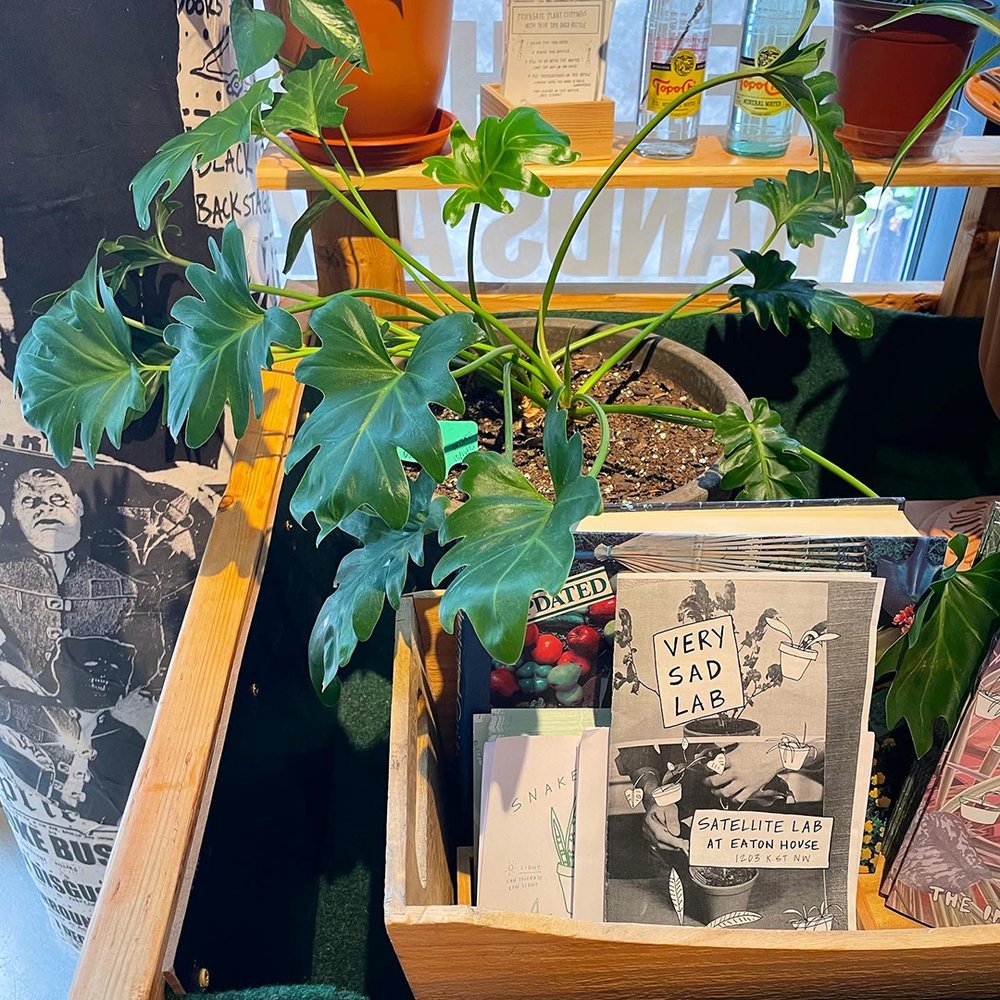
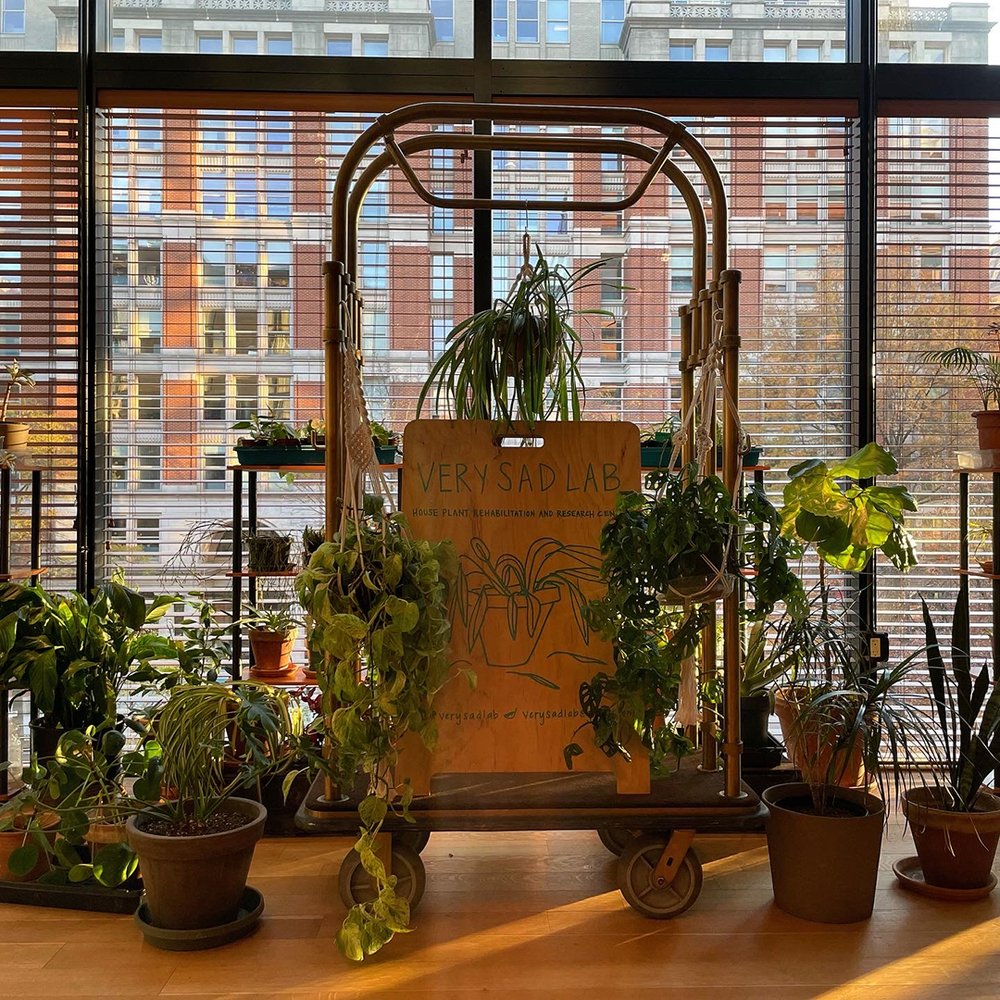
Wiseman and Wowsugi founded the Washington, DC-based Very Sad Lab (VSL) in 2019 as a houseplant rehabilitation, community education and art research program. Nominated for an Eaton House Residency in 2021, they seized the opportunity for more space and a central area to host monthly Sad Plant Clinics, workshops and events.
Those looking for a plant diagnosis can make an appointment at the Eaton Workshop or drop into a local pop-up. Patient intake forms read like a botanical mid-life crisis.
Jade 101:
Turning mid-life plant crises around is a Very Sad Lab specialty. “We’ve learned that, no matter what, we all have or will make our plants sad now and then. We promote that there’s no shame… but it’s an opportunity to learn how to better care for your plants,” says Wiseman.
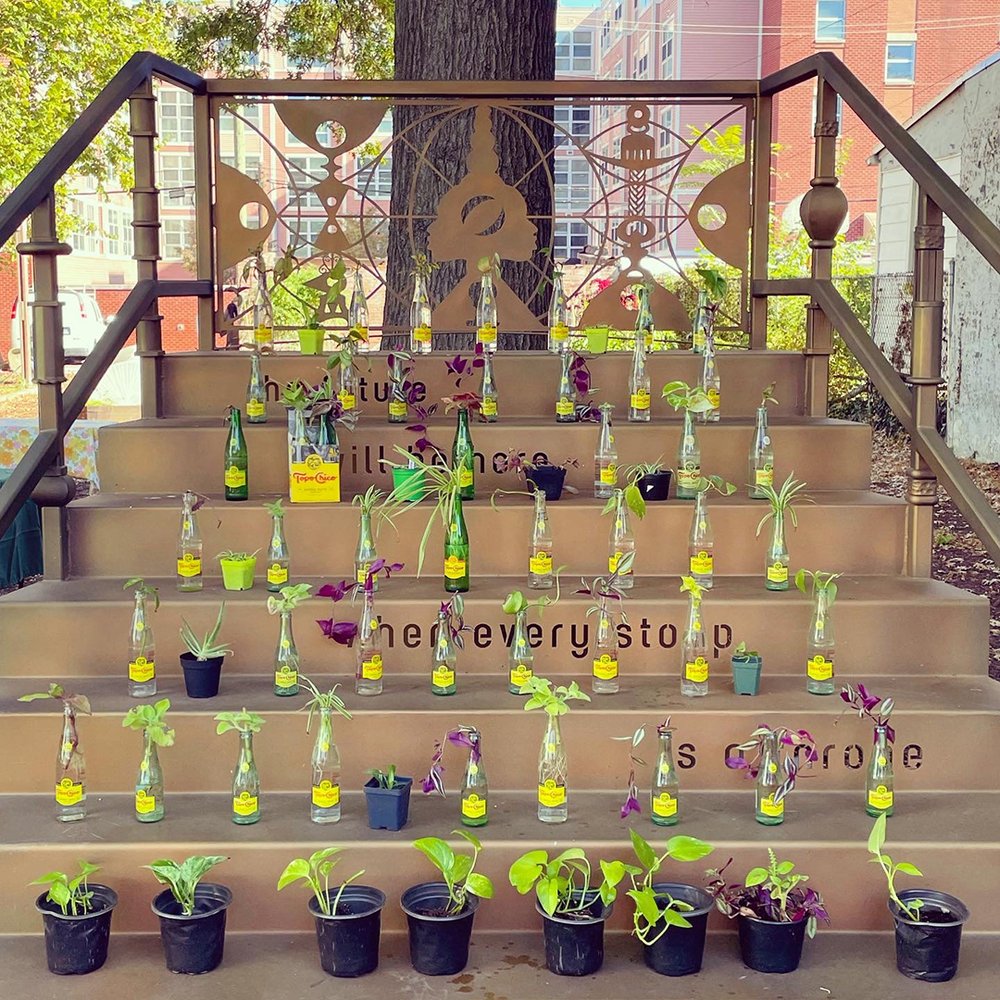
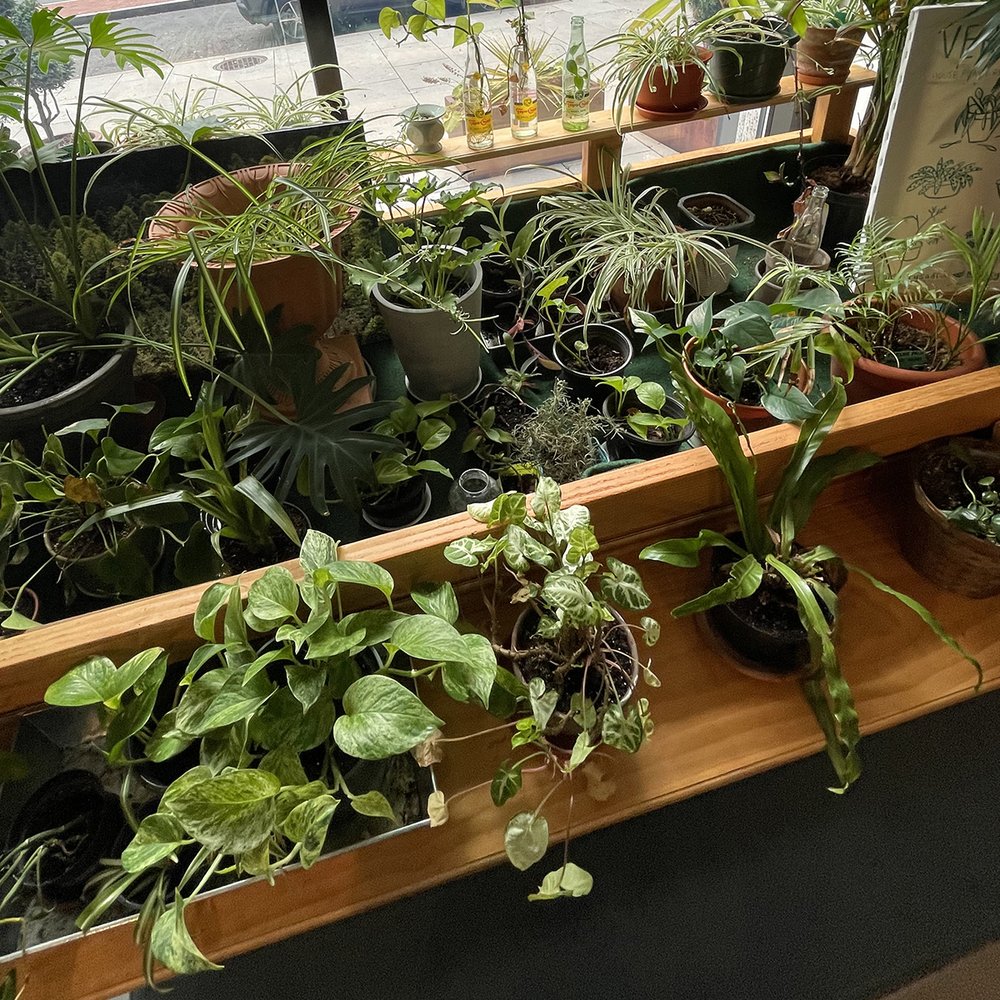
The community engagement of Very Sad Lab centers around the convergence of humanity and horticulture, where rehabilitation can be facilitated in both.
Horticultural therapy, the concept of utilizing plants and outdoor environments as therapeutic mediums, has a rich history dating back to ancient civilizations. As early as 2000 BC, ancient Egyptians documented using walks through the garden as a therapeutic tool.
Modern research suggests visible greenery is restorative, and that spending even 5 to 10 minutes in the same room with houseplants can make us measurably happier and healthier. A study by Texas A&M revealed that spending time in natural outdoor settings can even enhance memory function and concentration levels by up to twenty percent. Further studies have found that even looking at photos of plants can positively impact stress levels, particularly purple and green plants, which have shown to be effective at reducing negative feelings.
“Houseplants can give us a little bit of predictability when things are uncertain,” says Gary L. Altman, associate director of the horticultural therapy program at Rutgers, The State University of New Jersey. “There’s an evolutionary response when you see green, it’s almost like you created yourself a sanctuary.”
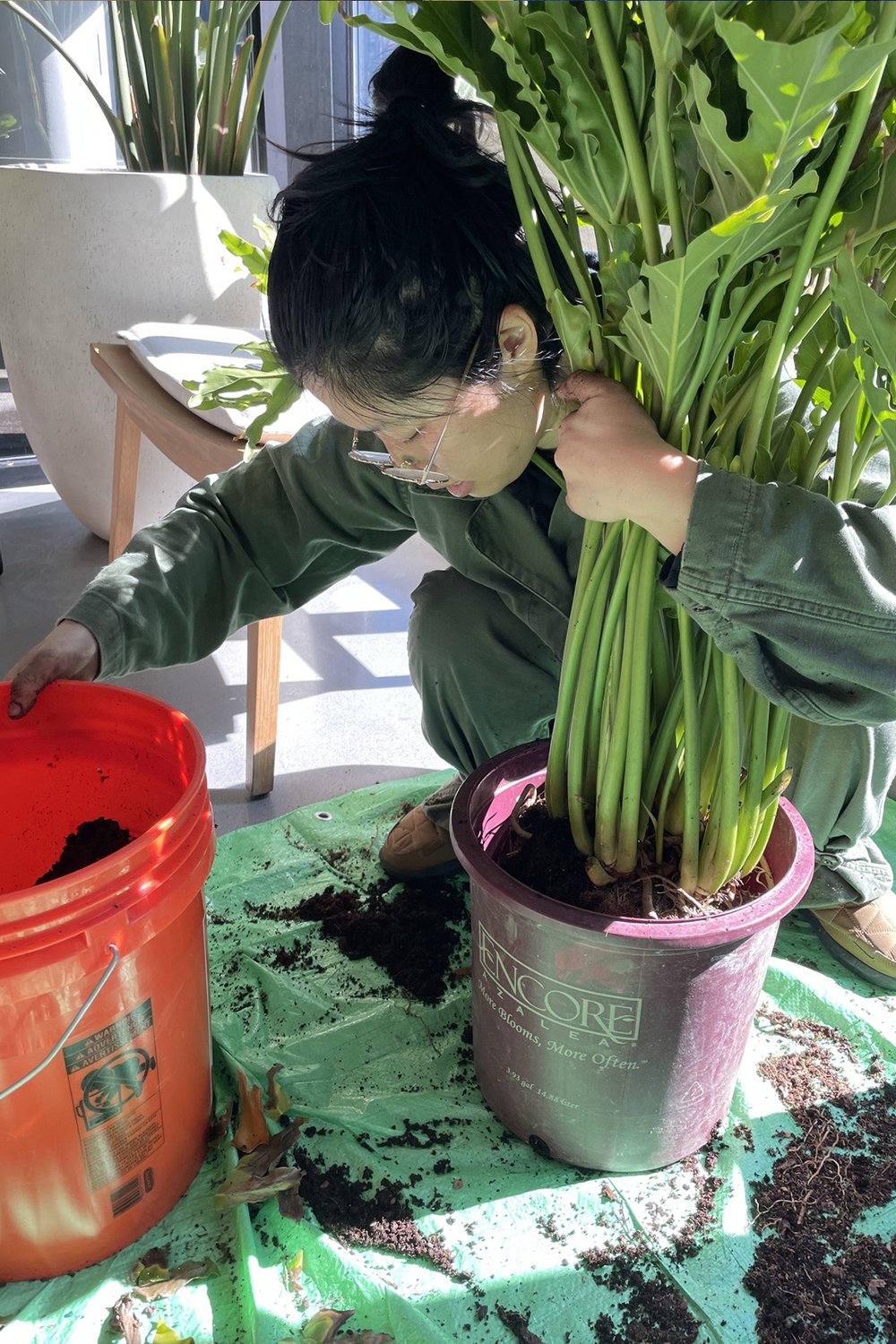
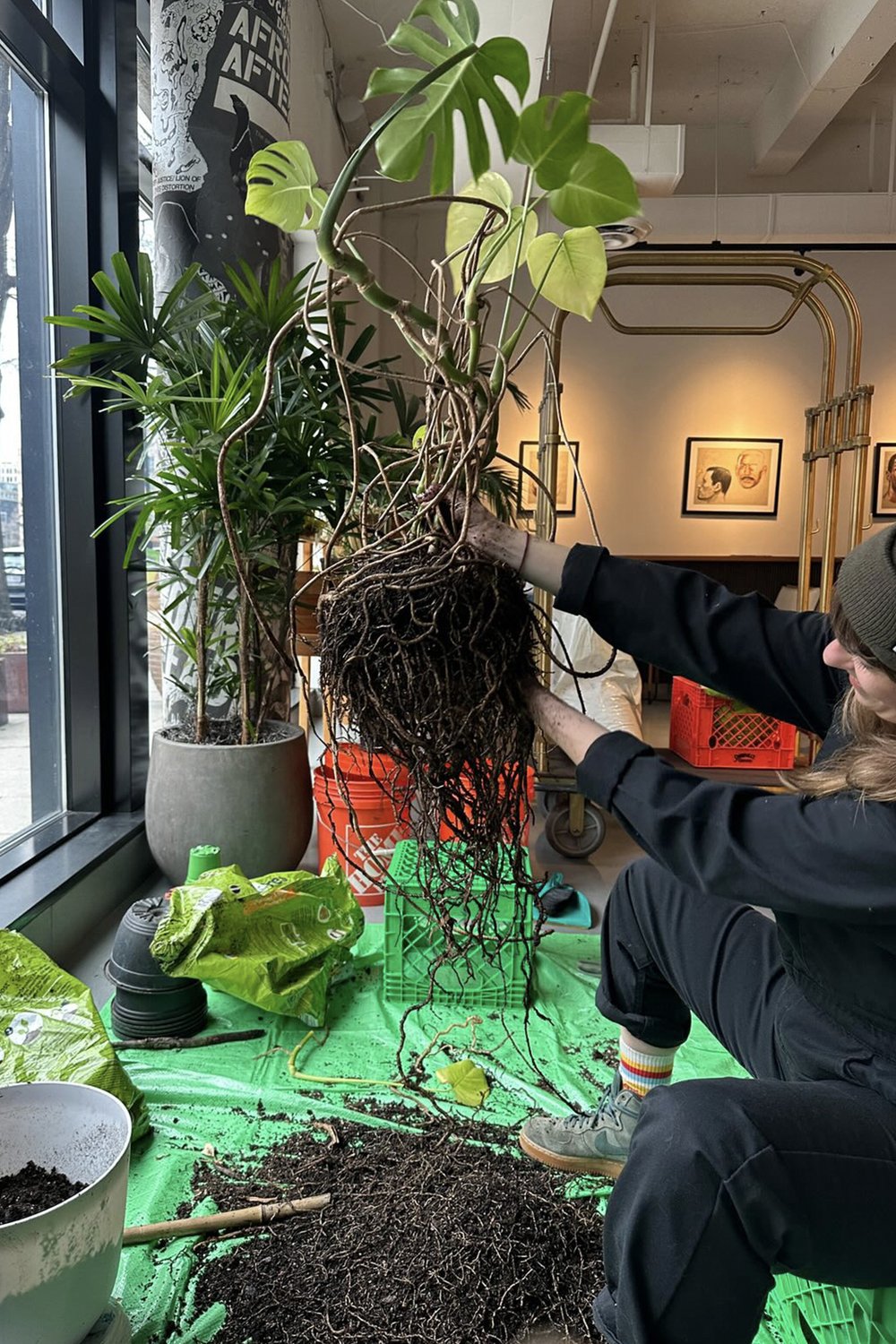
Embracing the principles of bioregionalism, a philosophy suggesting that political, cultural and economic systems can be more sustainable and equitable when organized around naturally defined areas, their educational pop-ups move nomadically around the core of the city, with a central art research lab at the Eaton DC.
A partnership with DC public libraries has yielded curated selections of urban gardening resources, in-person rehabilitation workshops, adoption events and printed ‘Pre-Plant-Parenthood’ guidance in the form of 'leaflets'.
“Many plant parents return to us… to repot their plants at our ‘Repotting Parties'. Plant parents also frequently share updates,” says Wiseman. “Long-term relationships are a foundation of plant care and an important part of VSL’s success.”
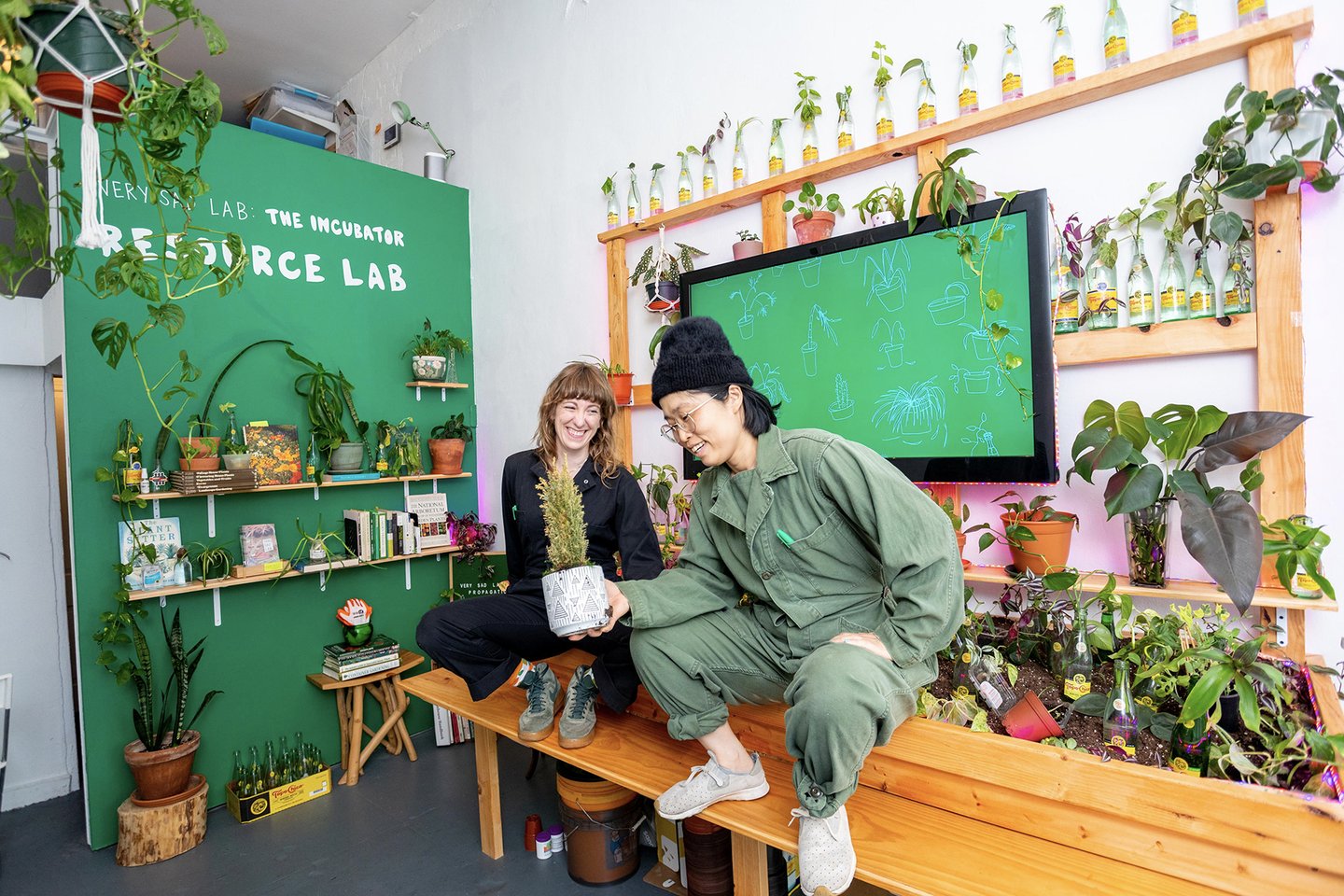
The Very Sad Lab has evolved into an open-ended narrative about interspecies relationships and access to green spaces and plants, where the absence of the latter has been shown to contribute to inequitable outcomes in health, wealth and overall wellbeing.
Against the backdrop of overdevelopment in the DC area, VSL is currently promoting the “multiplication of plants, happiness, and greener communities” through its Propagation PSA. The founders believe it is essential to emphasize the importance of access to green spaces for the growth of plants, the welfare of communities and the restoration of our connection to nature.
Wiseman and Wowsugi have big dreams, akin to the monstera plants recovering in their care. They envision embarking on a Very Sad Lab tour in a mobile greenhouse van, visiting fellow creative horticulturists, learning about plant care and collecting unique plant stories.
WLLW is displaying plants provided by Very Sad Lab at this year's Greenbuild in DC from September 26th - 29th, 2023.
To get in touch with VSL, contact Valerie Wiseman & Naoco Wowsugi.
Photography: Very Sad Lab (Valerie Wiseman & Naoco Wowsugi), Mariah Miranda

4 min read
Conscientious inaction can be the key to biodiversity. For the modern gardener, what we choose not to do, not to buy, or not to mow is sometimes of greater consequence to the natural environment.
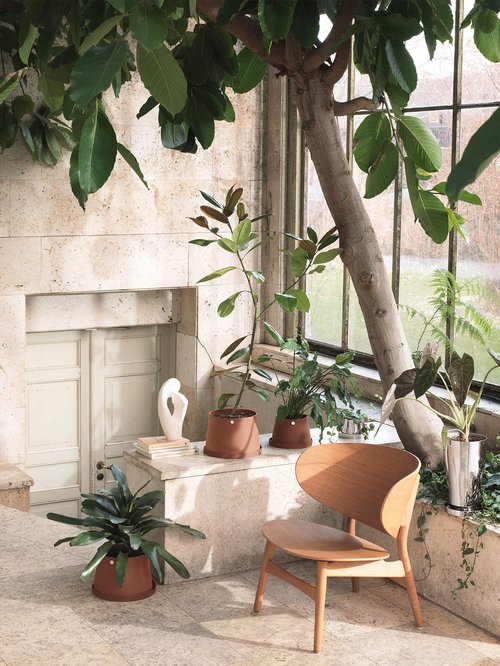
3 min read
Being surrounded by greenery does wonders for our physical and mental health – certain species can even purify the air in our homes. Here are eight of the most effective.